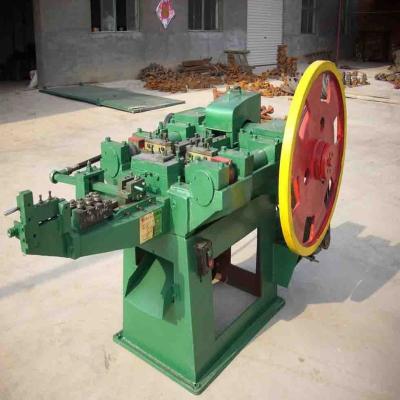Nut Bolt-Making Machine at Best price in Mayo World
Bolt-producing machines, also known as cold forging machines, are the devices used to manufacture steel nuts and bolts. Machines for horizontal, vertical, and transfer cold forging are among the various varieties of cold forging equipment. Technical details about a bolt-making machine can differ based on the manufacturer and model, but common details include the kind of forging process, maximum capacity, production rate, and energy consumption. Additionally, to create a variety of nuts and bolts in different shapes and sizes, bolt-producing machines can be fitted with a range of tools and accessories, including feeders, dies, and punches.
Nuts are fasteners having threaded holes that are used to secure numerous parts together when paired with matching bolts. Despite being called a threaded fastener, the bolt has an external thread that needs an interior thread, like a nut. Bolts and nuts go well together. There are various applications for nuts and bolts; they are utilized in furniture construction, final product manufacturing, and the creation of consumable goods. Our website lists many manufacturers and suppliers of Wire Mesh Welder
Uses of Bolts and Nuts in Industries
Agriculture: Farm buildings, grain bins, drying rooms, field irrigation systems, and filtration systems all use fasteners.
Automobile/Transportation: Fasteners are utilized in the assembly of a wide variety of vehicles, including cars, trucks, airplanes, and specialized construction gear.
Constructing and Building: Scaffolding and other support structures used in building and construction applications depend on fasteners to be structurally sound.
Chemical refinement: Chemical refineries use fasteners made of high-performance, corrosion-resistant materials such as exotic metals, tool alloys, and stainless steel. Heat exchangers, tanks, and processing systems are just a few of the devices that use them.
Marine: Fasteners used in the maritime industry need to be highly resistant to corrosion to survive the extended exposure to saltwater that marine decks, ramps, bulkheads, and tanks undergo. Aluminum and stainless steel are common materials used in marine fasteners.
Military: Military fasteners are designed to survive extreme heat, corrosive materials, and hard circumstances. Examples of equipment that is used frequently include heat exchangers, processing equipment, and machinery motors and engines.
Gas and oil: Like those used in the military, fasteners used in the oil and gas industries must function reliably under harsh conditions of stress and corrosion. These fasteners are utilized in processing equipment such as pumps, tanks, and drilling rigs.
Generation of electricity and power: Fasteners for the power generating industry are made from high-strength and corrosion-resistant materials such as stainless steel, copper, nickel alloys, aluminum, and other steel alloys. Storage containers, electrical equipment, exhaust systems, and motors and pumps are among the common applications.
FAQs
What is a nut bolt's working principle?
To maintain the operating conditions without loosening, their primary purpose is to apply a clamping force across the joint. For bolts to function well, they must exhibit spring-like characteristics and utilize their elastic capabilities when properly tightened.
What does the bolt-and-nut method involve?
Bridge construction and structural bolting employ the Turn-of-Nut method, a rotation-based installation technique. The minimal amount of tension required is achieved by applying a specific degree of relative rotation between the bolt and the nut in this popular bolt pre-tensioning technique.
Devise the most Searched Nut Bolt Making Machine
Wire Nail Making Machine | Screw Making Machine | Coil Nail Making Machine | Nut Former Machine







 Your inquiry is forwarded to the verified relevant businesses.
Your inquiry is forwarded to the verified relevant businesses.